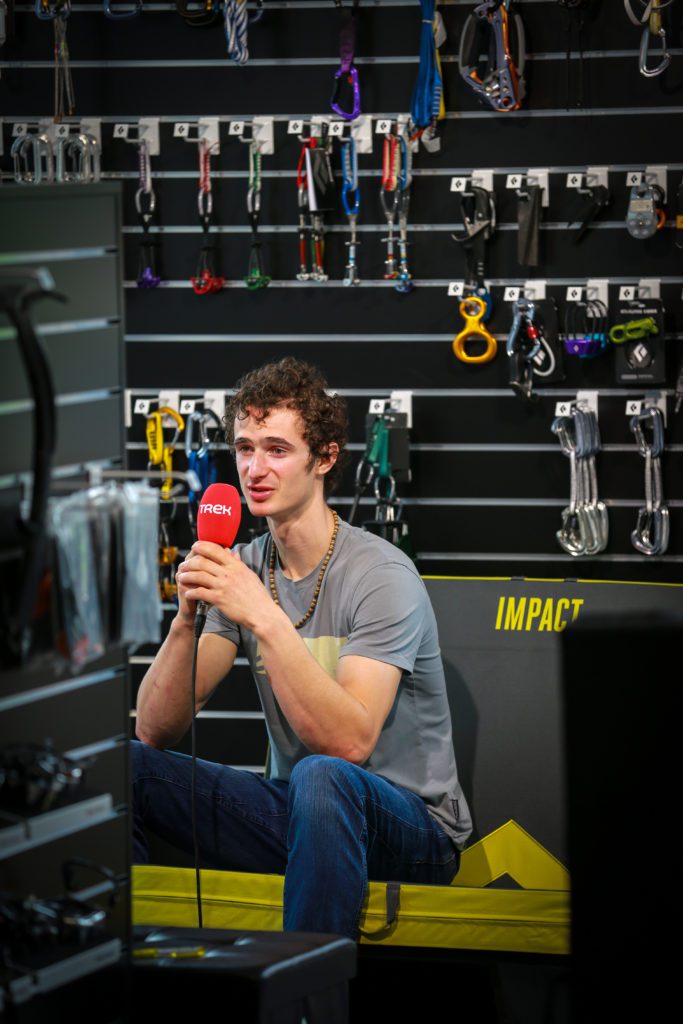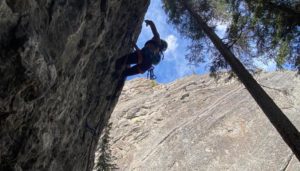The Road to Tokyo Panel Talk With Adam Ondra
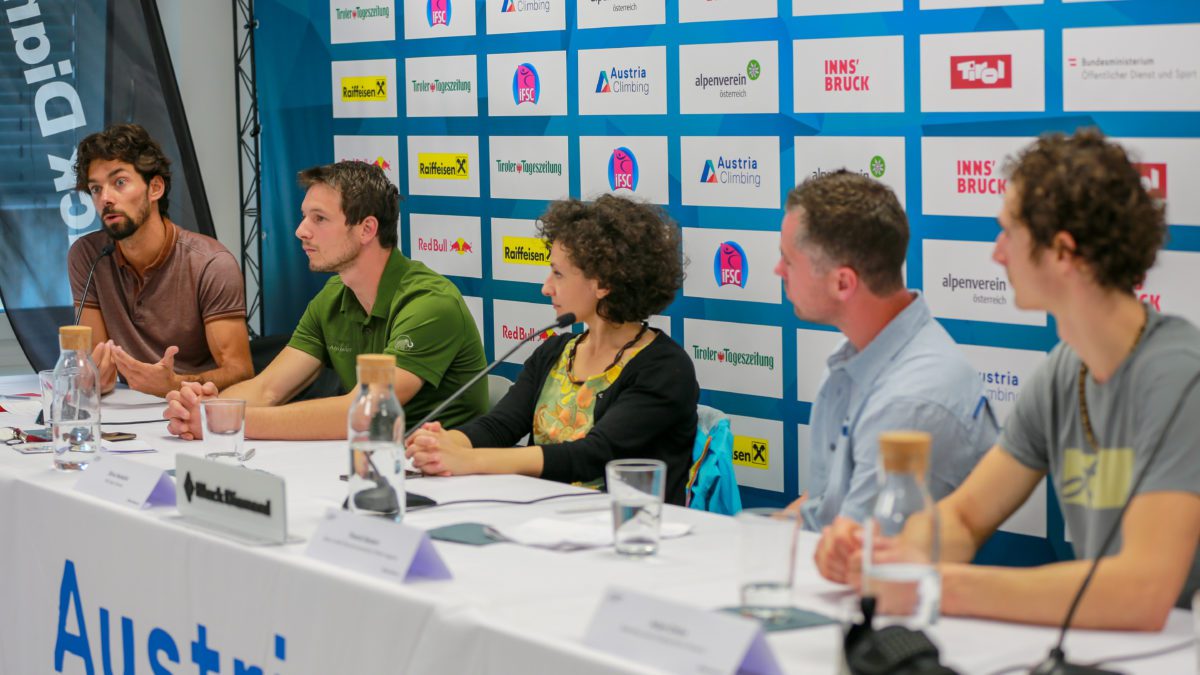
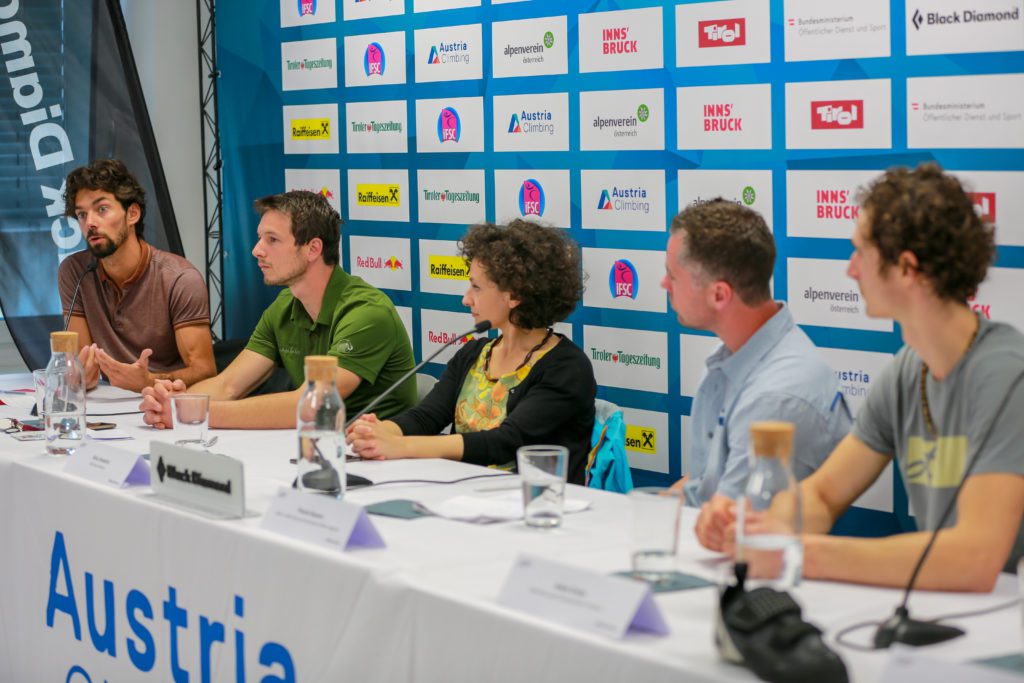
The 2018 IFSC Climbing World Championships in Innsbruck, Austria, was full of action with athletes and coaches working hard to podium.
Some of the biggest names in the IFSC and IOC world took time out of one of their days to sit on the Black Diamond panel discussion about the road to the 2020 Tokyo Olympics.
Adam Ondra was joined by Black Diamond climbing category director Kolin Powick, Francis Sanzaro of Rock and Ice, the CEO of Austria Climbing Heiko Wilhelm, the IFSC head of Olympic coordination Jerome Meyer and the IFSC sport director Silvia Verdolini. It was moderated by John Lewis Dicuollo of Backbone Media and introduced by Christian Lehmann, the brand marketing and pro sales manager of Europe.
The panel covered a number of topics including the evolution of competitions, the future of the IFSC, comp formats and expectations of the Olympic games.
“There are many coaches that in the end, they think that outdoor climbing is even harmful for the competition,” said Ondra.
“On the short term right before the competitions, it might be. On the long-term it’s very beneficial, but some coaches don’t understand it at all. And I think there is a danger that there is going to be more and more people like that. That climbing is about climbing in the end and no matter if it is gym or outdoor.”
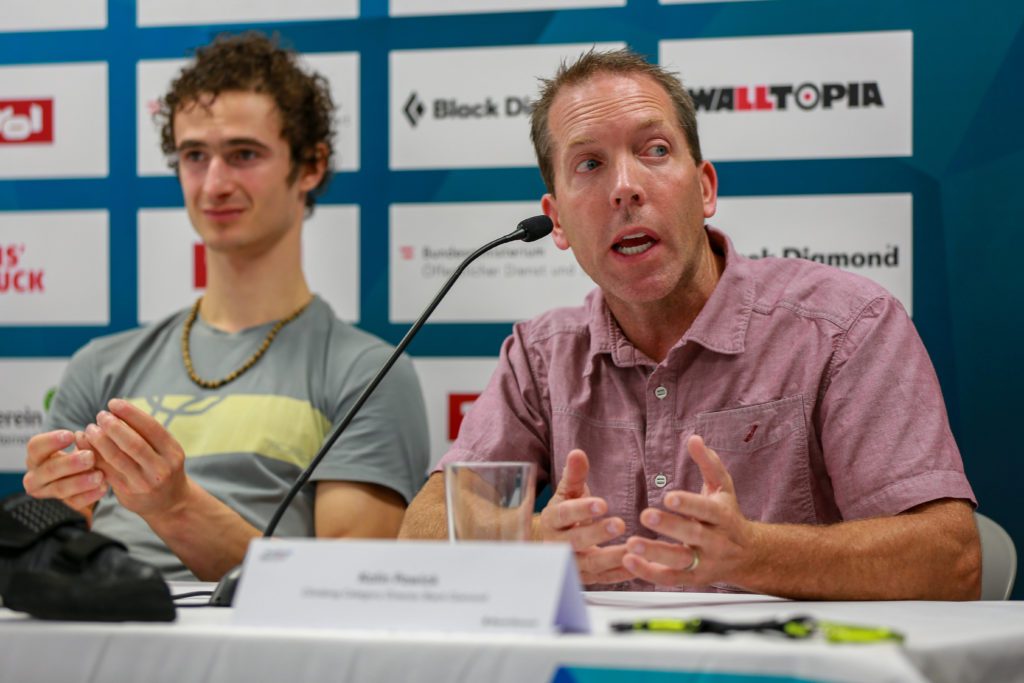
Brandon Pullan, editor-in-chief of Gripped magazine, was in the audience with a number of international media members.
Pullan asked Sylvia, “We talked earlier about the sport presentation and having that emotional connection between the athlete and what’s happening on stage and the audience. Can you talk a bit about how it’s come to here from 15 years ago when it was like, ‘So and so from this country,’ and go – to, ‘Okay, this is so and so from this country. They have a two-year-old son that was just born and we should love them’ and are emotionally connected to them almost right away. Where is that going to go in the future?
Sylvia: “Yeah. So, it’s a mix of things. So one part is to show that emotion and the other side is also to show that emotion to people not known in the sport. So it’s giving an understanding and showing the values of our sport to someone that is just starting to watch a competition and the work we’re doing.
“And this is thanks to our event organizers, the national federation is really into working together to try to look at the competition from someone that has never seen it. And so trying to create the story line.
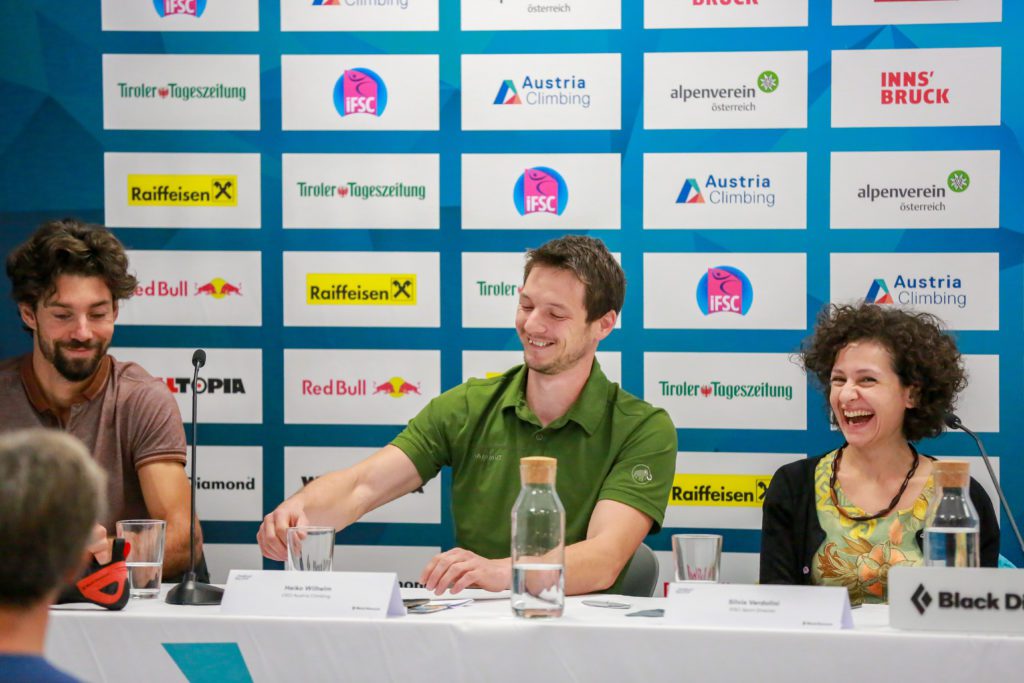
“There’s a mix of an understanding of what is happening and also add that emotional moment. As we were saying earlier, in paraclimbing events, that’s an item that’s taken for granted because there is that connection with the coach and there is that immediate emotional moment. But that does not mean that in all of our disciplines it is not present. It’s there. It is just a little bit more hidden.
“So, here they’ve done already a really great work as in after the lead competition: We saw a shot of the coaches and their excitement. That might seem a minor thing, but that helps the audience to connect and to get that emotion and understanding of also the level of the athleticism that they’re showing at the events.”
Ondra also weighed in about route setting and said, “I would like to go back to the route setting and the routes that yes, we should definitely consider to make the sport even more breathtaking and interesting and maybe shorter but at the same time stick to the values and the cores.
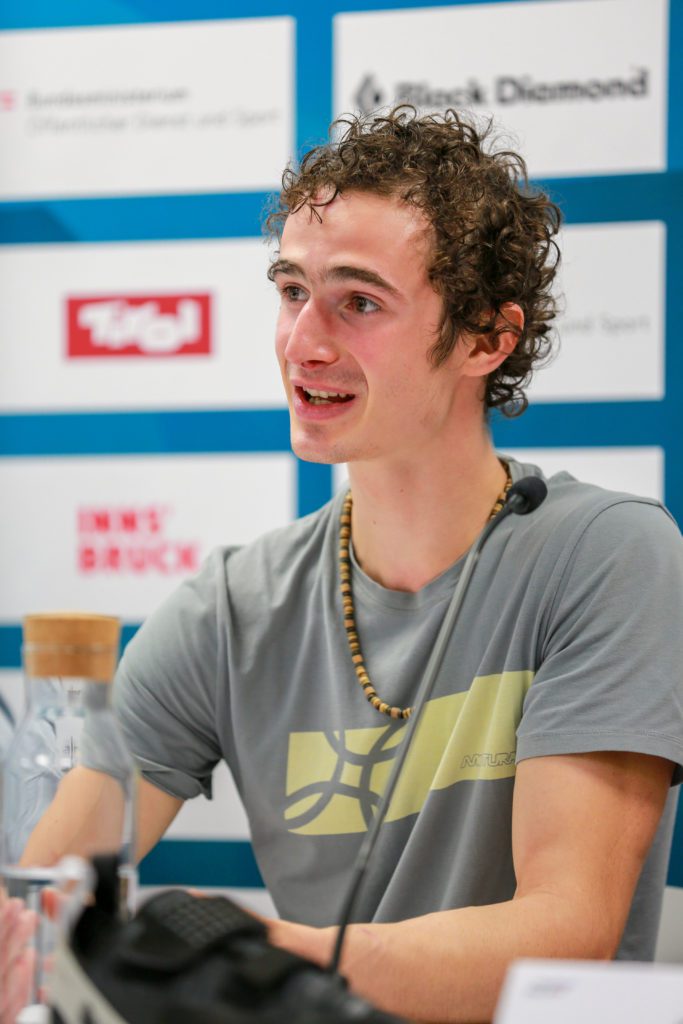
“So, definitely like in terms of lead, making it too much kind of like a speed climbing competition or in my point of view reducing the climbing time in the finals four to six minutes for certain walls is definitely a bad idea because you can’t really make a route which is hard and which will let you climb in your own style within six minutes because some of the walls are just simply too high.
“And in my point of view, that’s just kind of a point where it’s just thinking that you have to make it short in order to make it dramatic and in the end you only just kill the drama because just watching somebody fall all of a sudden just climbing as fast as possible and just messing up and falling off too early is not nice to watch.”
Full PDF Transcript of Road to Tokyo
